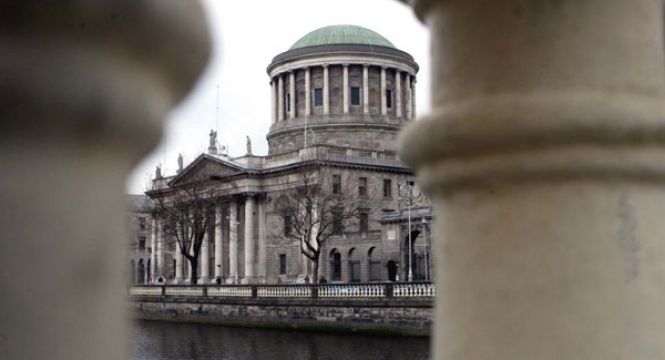A woman's bid to have her marriage formally annulled because she says the marriage took place without her full consent and her former husband lacked the capacity to marry because he was either gay or bisexual has been dismissed by the Court of Appeal.
The man rejected the claims.
The parties, who married in the 1990s after they both lived overseas, separated over a decade ago. They cannot be identified for legal reasons.
High Court petition
Following their separation, the Circuit Court ordered in Family Law proceedings that their children should reside with their father while their mother was granted access.
The woman petitioned the High Court to have her marriage annulled on the basis that the man had allegedly subjected her to such duress that their marriage took place without her full and independent consent.
She claimed that she was under his control, and was isolated from her family and friends due to his allegedly violent and threatening behaviour.
She further claimed he lacked the capacity to enter into a sustained and caring marital relationship with her because he was mentally unstable, and was either gay or bisexual.
No evidence
In a 2019 judgment Ms Justice Leonie Reynolds dismissed the woman's application on the basis there was no evidence to support her claims.
The woman had fallen well short of establishing her claims and was aggrieved that her former partner got custody of their children in the judicial separation proceedings, Ms Justice Reynolds said.
The woman, who represented herself, appealed that decision to the Court of Appeal on grounds including that she did not get a fair trial, and that during the hearing the judge was biased and displayed hostility towards her.
The man opposed the appeal.
Children's custody
In its decision the appeal court comprised of Mr Justice Caroline Costello, Mr Justice Robert Haughton and Mr Justice Donald Binchy dismissed the appeal in its entirety.
Giving the court's decision Mr Justice Binchy said the reason the woman brought the proceedings seeking a decree of nullity was so she could have the Circuit Court order regarding their children's custody set aside.
The judge added that despite the fact the couple's children had reached the age of majority when the appeal came on for hearing the woman opted to bring her application to a finality, which the judge said was her right.
Mr Justice Binchy said the High Court was entitled to conclude that there was a "paucity of evidence" to support her claim that her consent to marry was "given under duress."
There was no evidence to suggest the woman was manipulated into getting married and was of "timid disposition" as the woman claimed.
The evidence, as the High Court found, was on the contrary, Mr Justice Binchy added.
Photo
Mr Justice Binchy said the woman had claimed that her former partner was gay or bisexual. Her evidence consisted of a claim that one of his friends had told her on their wedding day that many had, until then, assumed he was gay.
She also produced an old picture of her former partner with his arm around another male individual was a long-time friend of his. The court heard that she believed that her former husband was in an intimate relationship with that other male.
The Judge said the photograph, taken when both men were in their teens, could only be described as depicting a gesture of friendship which no reasonable person could draw any conclusions as to the subject's sexuality.
The judge said there was no evidence that the man, who denied the claims, is homosexual other than the opinion formed by the woman, which seemed to be formed without any reasonable basis.
Dismissal
The trial judge, he said was not just correct to hold against the woman on this point, but had "no choice" other than "arrive at the conclusion she did."
The Court of Appeal also rejected all of the woman's other grounds of appeal including her claims that her husband suffered from a mental illness, lacked capacity to enter a marriage or that the trial judge was biased against her.

"I do not consider the manner in which the trial was conducted by the trial judge indicates any bias or hostility towards the woman on the part of the trial judge." he said.
The judge added that in his view the transcript indicates the trial judge "did her best to guide and accommodate the woman."
In dismissing the appeal Mr Justice Binchy concluded that the High Court's decision to dismiss the woman's petition, given the lack of evidence advanced, was "not just correct but inevitable."
The court also awarded the man his legal costs.







